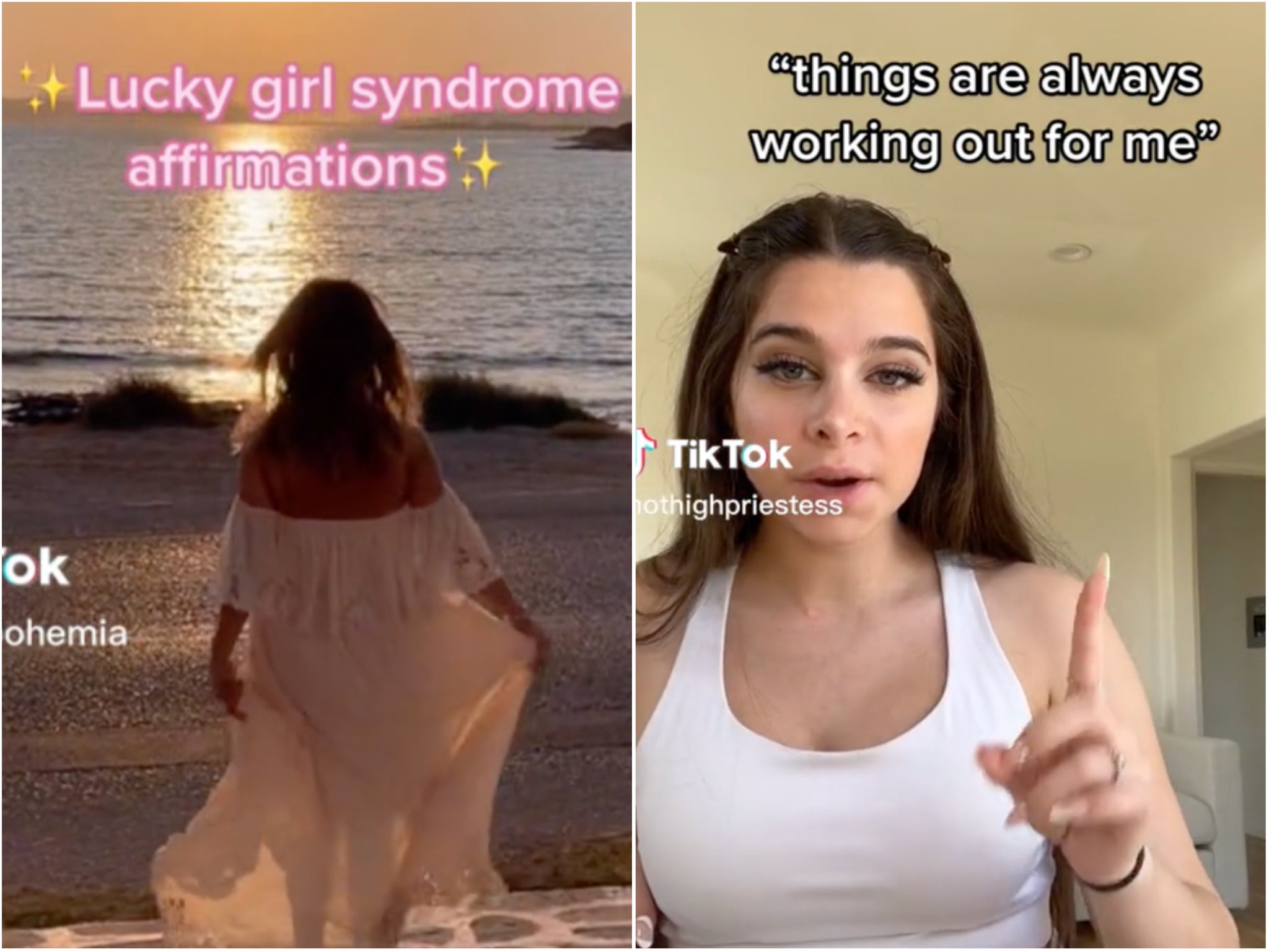What is lucky girl syndrome? The new TikTok manifestation trend explained
Psychologist Dr Carolyne Keenan said the trend is a result of confirmation bias

Your support helps us to tell the story
From reproductive rights to climate change to Big Tech, The Independent is on the ground when the story is developing. Whether it's investigating the financials of Elon Musk's pro-Trump PAC or producing our latest documentary, 'The A Word', which shines a light on the American women fighting for reproductive rights, we know how important it is to parse out the facts from the messaging.
At such a critical moment in US history, we need reporters on the ground. Your donation allows us to keep sending journalists to speak to both sides of the story.
The Independent is trusted by Americans across the entire political spectrum. And unlike many other quality news outlets, we choose not to lock Americans out of our reporting and analysis with paywalls. We believe quality journalism should be available to everyone, paid for by those who can afford it.
Your support makes all the difference.TikTok users have adopted the platform’s most recent manifestation trend: “lucky girl syndrome”.
Endorsing this method of manifestation, TikTok users have claimed that the scientifically dubious technique of positive affirmation will guarantee success and prosperity.
The hashtag #luckygirlsyndrome has more than 250 million views on the social media platform, and users have shared thousands of videos claiming that the trend has benefitted them in their careers, finances or living situations.
The trend revolves around the claim that chanting “I am the luckiest person alive” as a daily affirmation can lead to creating the lifestyle that you desire.
What is lucky girl syndrome?
Lucky girl syndrome is the name of the viral TikTok trend wherein people use manifestation techniques as a way of turning their dreams into reality.
It involves people reciting daily positive affirmations with the belief they will bring good fortune into their lives.
People post videos of their affirmations – typically along the lines of “I am so lucky”, “everything works out for me”, or “I always get want I want” – as a method of manifesting what they want in life.
Is there a scientific or rational explanation for this?
Psychologist Dr Carolyne Keenan told the BBC that the lucky girl syndrome phenomenon is related to confirmation bias, which is the tendency to process new information as confirmation of one’s existing beliefs or theories. Under this bias, you remember the times things did work out in your favour, and overlook the times they didn’t.
Keenan raised concern about the assumption that you can “create” your own luck.
“There are going to be, unfortunately, some situations in life that we are not able to manifest and think our way out of,” she said, continuing: “I would be concerned about people being in situations where maybe that’s not going to be an effective strategy.”
What happens to “lucky girls”?
The people participating in this trend believe that they will get their own way in life and achieve their goals by manifesting their success.
In one TikTok video, a user claims to have earnt enough money to put down a deposit to buy their first home after starting the “lucky girl syndrome” affirmations.
In another clip, a user claimed that the reason they got into the college they wanted, had a “great career” and got “everything” they wanted was because of their commitment to manifestation techniques.
What are the criticisms of “lucky girl syndrome”?
Many of the TikTok users celebrating the trend are young, white, non-disabled women.
The trend has been criticised by people who say the users already hold a certain amount of privilege in comparison with those who face systemic oppression such as racism or ableism.
Other criticism has been aimed at the suggestion that being poor or experiencing difficulty in life is simply down to bad “luck”.



Join our commenting forum
Join thought-provoking conversations, follow other Independent readers and see their replies
Comments